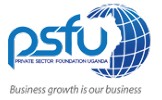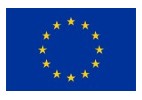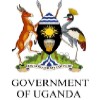The European Union (EU) is making available grant financing of up to EUR 152 million (UGX 624 billion) to Uganda to support education for adolescent girls, reduce sexual and gender based violence, promote sexual and reproductive health as well as develop strategies for sustainable development and management of forests in Uganda.
The grant-financing announcement came during the high-level visit to Uganda by Myriam Ferran, Deputy Director General of the EU’s Directorate-General for International Partnerships.
During her visit, Ms Ferran launched the new programme, Gender for Development Uganda (G4DU), a EUR 112 million programme co-financed by the EU, Germany and Belgium, in partnership with the United Nations, to support education for adolescent girls, reduce gender-based violence and promote sexual and reproductive health.
“The action is essentially about girls and women, about empowering them and about protecting them from violence so that they can realise their full potential and contribute fully to Uganda’s development and the country’s vision to become a modern and prosperous country,” said Ferran. She added, “There have recently been reports of child abuse, including in schools and as parents we are all very much concerned. Through G4DU, the EU is concretely demonstrating its support and commitment to protect children in Uganda.”
The first component of Gender for Development Uganda (G4DU) project will address some of the key determinants for adolescent girls’ education (such as financial barriers, WASH facilities in schools and communities, social norms, effective and gender responsive teaching, improved and safe learning environment, improved school management) and for their transition from primary to secondary school and the re-entry into school of girls who have dropped out, including during pregnancy and after childbirth. G4DU will consider the specific challenges for girls while contributing to improving the education system more broadly for both boys and girls. The Action will focus on the transition from upper primary to lower secondary.
The second component of the Action, building on the EU-UN Spotlight initiative, will aim at reducing SGBV and promoting SRHR at national and sub-national levels, including in and out of schools, through enhanced coordination and support to institutional strengthening for the implementation of laws and policies, engagement of civil society and institutions for equitable social norms, behaviours and attitudes, and enhanced capacities for the delivery of integrated and multi-sectoral prevention and response services. Interlinkages between the two components will be fostered, including through age and culturally appropriate sexuality education in and out schools, the reduction of SGBV in and around schools and SGBV prevention through education.
During her visit, Ferran also met Uganda’s Minister for Water and Environment, Sam Cheptoris and congratulated Uganda for being amongst the first five countries in the world to sign a Forest Partnership Agreement with the EU at the COP 27 in Sharm El-Sheikh, Egypt. This commitment, she said, has unlocked EUR 40 million in EU financing to Uganda to contribute to the shared objectives to fight against climate change and protect biodiversity. The programme is co-funded by Italy and will look at forests in all its aspects, promoting governance of the sector, promoting value chains, strengthening protection and restoration and improving livelihoods.
“The Forest Partnership is a demonstration of common aspirations to enable forests to fulfil their economic, social, and environmental roles and a common responsibility posed to forests by human, social and development needs,” she said.
These programmes are part of a broader Team Europe approach, and concrete examples of the EU’s Global Gateway strategy, which seeks to promote sustainable connectivity and infrastructure in Africa and has education and environment as core priorities.
The Government of Uganda and the EU enjoy a long-standing collaboration in natural resources management (forestry, water, climate change) for over 30 years but most recently in the past 15 years this collaboration has mainly been in the field of commercial forestry. The overall objective of the EU Forest Partnership with Uganda is to enhance the sustainable contribution of Uganda’s forest resources to national inclusive economic growth and to global efforts to address climate change and loss of biodiversity. The specific objective/outcomes of this action are: to increase inclusive investments and decent job opportunities for women and men in sustainable forestry and forest-based value chains; to increase forest cover by both decreasing deforestation and forest degradation and promoting forest restoration and community support to preservation efforts; and to enhance effectiveness of forest resources governance, protection and management.




